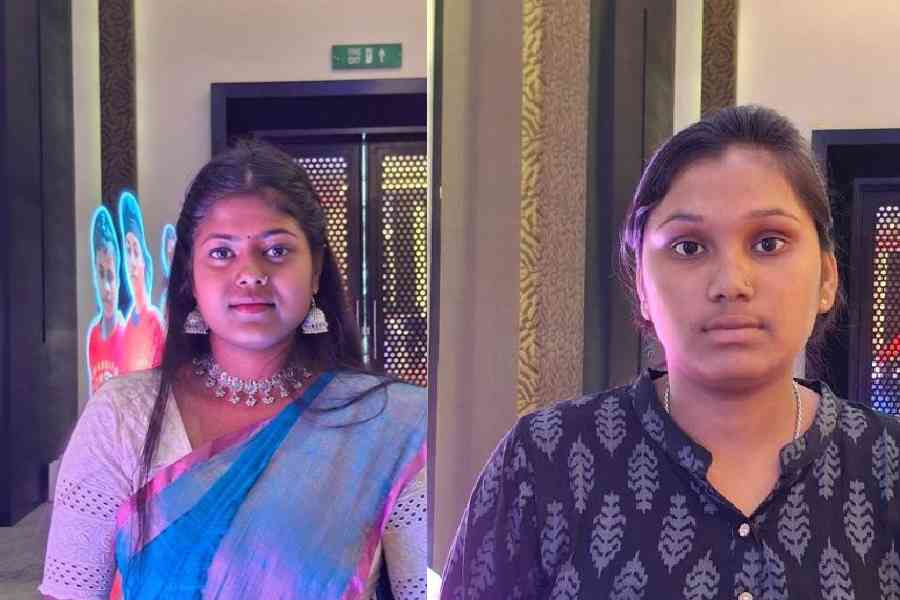Hundreds of girls have used kabaddi to reclaim their space in the community, defy patriarchy, fight gender bias, change their own mindset and that of those around them.
The sports-based intervention that has helped adolescents and teenage girls find a voice has completed six years and empowered as many as 4,000 girls in five districts — Malda, Murshidabad, North and South 24-Parganas, Siliguri and South Dinajpur.
A conclave — Empowerplay: Building a safer future for girls through sports — was organised on Thursday by the state commission for the protection of child rights in collaboration with the children’s aid organisation Terre des Hommes Foundation and NGO Praajak.
The conclave brought together representatives from the government and NGOs to discuss how sports can bring about meaningful change and amplify the voices of children and girls.
Some of the young girls were acknowledged on the stage for being the change in their communities.
Undergraduate student Tanima Kar started playing kabaddi when she was in Class X.
It gave her the courage to speak for herself and stand up for her rights, she said.
“Till then, I knew that a woman’s job is to manage a household and raise children. My relationship with my father was formal, and I could barely speak to him, but when he fixed my marriage, I went up to him and said I want to continue to study and simultaneously play kabaddi,” said the girl from Malda.
Tanima brought home trophies and also played at the national level.
“My aunt, who previously would object to my playing the sport, then requested me to take her daughter to play,” she said.
Being the target of a jibe for wearing trousers and shirts, Malda’s Moutushi Das, played from other places like Berhampore, where people did not know her.
“It was only when I won trophies that people around me started giving me credit,” said the 18-year-old.
“Every day, we are trying to ensure the rights of all children in Bengal. We want to reach every child so that they can exercise their rights and enjoy their childhood,” said Tulika Das, chairperson, West Bengal Commission for Protection of Child Rights.
The head country office of Terre des Hommes Foundation, Anindit Roy Chowdhury, said that there has been a “consistent” discrimination when it comes to sports for girls and boys.
“Girls will play only up to a certain age, and girls and boys will not play together after a certain age. These have been societal norms and beliefs — a mindset with which most of us have been raised,” he said.
While they engage with the parents to get their girls to play kabaddi, they also use 15 minutes of “circle time” after each practice session to speak to the girls and make them aware of their rights.
“To change the mind of parents take time because girls in sports is not an every day thing,” said Deep Pukayastha, director of Praajak.
“Another problem that we came across was that the boys who grew up with these girls were opposed to the idea of girls playing and would refuse to give them access to public spaces.”
There were repeated instances of boys kicking the football into the kabaddi court or spreading shards of glass on the field to injure the girls.
“The girls fought against such instances of patriarchy from their peers,” said Purkayastha.










